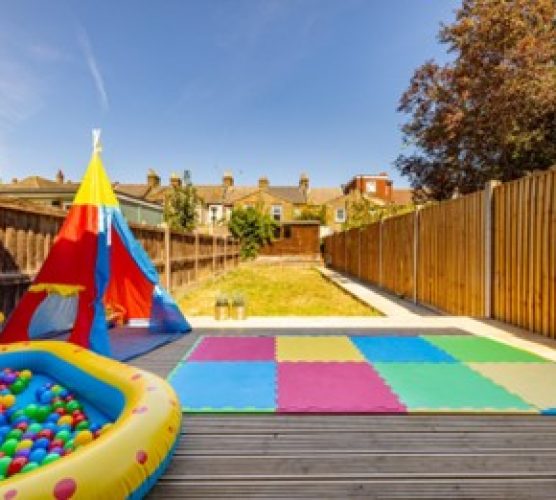Are you considering a childminder for your little one? Small group sizes and lots of 1:1 attention – sounds great right? But have you heard some things which are putting you off? There are lots of common myths and misconceptions about childminding. Today, we’re debunking some of the most common ones, and explaining how our home nurseries do childminding a little bit differently.
Childminding myth 1: nurseries are better than childminders
Although nurseries are the most common choice of early years childcare in the UK, this isn’t because they’re necessarily better. Both childminding and nurseries have its advantages and disadvantages, but childminding has been scientifically proven to be better for kids! This is both in terms of school readiness and wellbeing.
A childminder can provide more stability — you have one trusted caretaker, rather than a revolving door of key workers at nursery. In addition, it’s likely you can find a childminder with specific experience that may be hard to get in larger settings; if your child has special needs, having a trained professional looking after them can give plenty of peace of mind.

Koru Kids home nurseries have the best of nurseries and childminding rolled into one. The children are cared for by one loving Early Educator, just like a childminder — but they do so much more than just ‘mind’ children.
Our Early Educators are trained in forest education and take the children to local green spaces to play and learn every day. The kids still get lots of socialisation, like in a nursery, as there are different children on different days, and kids of various ages — so everyone forms sibling-like bonds.
Childminding myth 2: all childminders are Ofsted-registered
Yes, Ofsted does inspect registered childminders. However, childminders can also be registered through an Ofsted-registered childminder agency, like Koru Kids. Childminder agency registered childminders aren’t inspected by Ofsted, but are instead supported, helped to develop, and inspected by their agency. We visit our Early Educators annually, whereas Ofsted-registered childminders are only inspected every few years.
You can trust that every Koru Kids Early Educator’s rating is up to date with their current level of care — so say goodbye to 6 years out of date inspection reports! After each inspection — with Ofsted or their agency — childminders are graded either Outstanding, Good, Requires Improvement or Inadequate.
Childminding myth 3: There’s no oversight with a childminder
One of the biggest plus points we hear about nursery over childminding is that there is more oversight from a larger staff team. But, the benefit of using a Koru Kids home nursery over a traditional childminder is that we provide an additional level of legitimacy and support.
We have high standards and only recruit the best people. We rigorously vet our Early Educators (DBS checks on the entire family, home inspections and references) and train them in everything they need to know to give your child the best start in life.
All childminders, just like nursery staff, must have a thorough safeguarding knowledge, but our annual inspections ensure this level is retained. On top of this, we’re already trusted and loved partner-in-childcare for many parents, having run a successful nanny service for years.

Childminding myth 4: All childcare is equally expensive
While all parents want the best care and education for their little one, we know it also needs to fit within budget constraints.
Nursery is the most common choice among parents in the UK for childcare, and it’s notoriously expensive, it’s a little-known fact that there is a more affordable option: a childminder! This is because a childminder doesn’t have commercial rent and lots of staff members to pay, so they can charge less per day than nurseries.
Instead, childminders provide a home-from-home setting, with lots of individual attention and daily trips out to the local area. Koru Kids home nurseries start from £6.50 per hour, which includes all food, nappies, and activities.

Childminding myth 5: Kids settle in all childcare settings in the same way
All children are different, so there’s no one size fits all when it comes to the setting they’ll be happiest in. Kids also deal with change differently, and many children find the initial change of routine or an unfamiliar face a shock, before settling into this new way of life.
If your child doesn’t cope well with new environments, then a childminder might be your best bet. Nurseries can be noisy, full of new adults, and of course have lots of children. This is often very different to life during maternity or paternity leave for a little one — so a home-from-home setting like a childminder, where kids aren’t cooped up in one learning environment, are part of a small group, and have a trusted adult on hand, is a great option.

A childminder is a more bespoke option too. You can find someone who has similar values, beliefs or home to yours, which might make the settling process for your child smoother. All Koru Kids Early Educators are unique so you could find someone who has a large garden like you, speaks the same language you do, or cooks the same cuisine — all to ensure a peaceful transition to out-of-home care.
Even after choosing a setting for your child that you think will suit them well, there can be some tears and tantrums as they get used to it. We asked our resident Childcare Coaches – who are on hand to support Early Educators and parents — what are their top tips for settling.
Kelly suggests that you drop off and collect at the same time each day. She says, “this will support your child with getting used to their routine. It will also reinforce that you will return when you say you will.”. Lianne recommends finding out what they did each day, and really showing an interest in anything they bring home — “it can really help a child to settle when they hear you showing excitement about their day.”
Overall though, their number 1 tip is to build a strong partnership with your child’s Early Educator. Don’t be afraid to ask questions, share news from home or discuss any concerns. Your child will be happiest when there’s some continuity between home and their childcare, and both parties work together.



